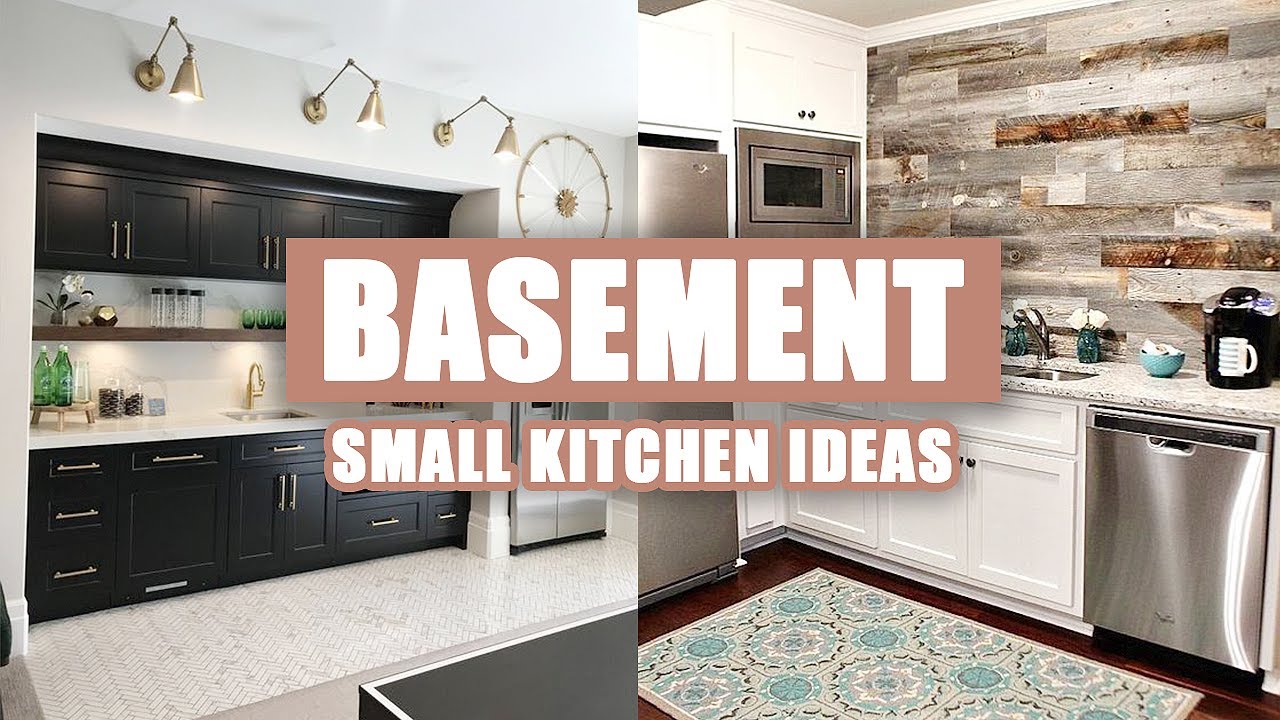Melvin is an expert for portable products.The site is for sharing everything about portable products for online buyers.
Yes, you can put a kitchen in your basement. However, there are various factors to consider, such as building codes, ventilation, plumbing, and electrical requirements, as well as proper insulation and waterproofing to prevent moisture issues.
Planning and consulting with professionals, such as contractors and architects, is essential to ensure a safe and functional kitchen installation. Additionally, assessing the available space, layout, and accessibility will help determine the feasibility of a basement kitchen. By taking these factors into consideration, you can successfully create a kitchen in your basement that meets your needs and adds value to your home.
Assessing Feasibility
Assessing Feasibility
Regulations and Permits
Before putting a kitchen in your basement, it is crucial to understand the regulations and permits required. Each location may have different zoning and building codes that need to be followed. Check with your local authorities to obtain the necessary permits. It is essential to ensure that the basement meets the requirements for habitation and has adequate egress points. Compliance with fire safety regulations is also crucial for the safety of occupants.
Structural Analysis
Assessing the structural aspects of your basement is vital in determining the feasibility of adding a kitchen. You need to ensure that the foundation is strong enough to support the additional load. Consult with a structural engineer to evaluate the integrity of the basement’s structure. They will assess key factors such as the foundation, walls, and support columns to determine their capacity to withstand the weight of a kitchen and appliances.
Assessing Plumbing and Electrical Systems
Incorporating a kitchen in the basement involves integrating plumbing and electrical systems. A plumber and electrician can evaluate the existing systems to determine their capacity to handle the requirements of a kitchen. They will check if the current plumbing and electrical connections can accommodate additional fixtures and appliances. Upgrading these systems might be necessary to ensure proper functioning and safety.
Design Considerations
Designing a kitchen in your basement requires careful consideration to ensure functionality and efficient use of space. One of the key aspects to focus on is the layout and space optimization. It’s important to plan the placement of appliances, cabinets, and countertops in a way that maximizes workflow and minimizes clutter. A well-designed layout will make it easier for you to move around and work efficiently in the kitchen.
Ventilation and airflow are crucial considerations when creating a kitchen in the basement. Since basements typically have limited natural ventilation, it’s essential to install exhaust fans or ventilation systems to remove cooking odors and maintain a healthy indoor air quality. Proper ventilation will help prevent the buildup of moisture and keep the space fresh and comfortable.
Lighting plays a significant role in creating the right ambience in your basement kitchen. Incorporating a combination of task lighting, ambient lighting, and accent lighting can enhance the functionality and atmosphere of the space. Consider using LED lights for energy efficiency and installing dimmers to adjust the lighting intensity as desired.
By paying attention to these design considerations, you can transform your basement into a functional and inviting kitchen space.
Installing Kitchen Fixtures And Appliances
When it comes to installing a kitchen in your basement, there are several important factors to consider. One of the key elements is the sink and plumbing installation. It is crucial to ensure that you have proper access to plumbing lines for water supply and drainage. Hiring a professional plumber is highly recommended to ensure that all connections are done correctly.
Another essential aspect is the electrical wiring and outlets installation. You will need to plan the layout of your kitchen and determine the number and location of electrical outlets needed for appliances and lighting fixtures. Hiring a licensed electrician is crucial to avoid any safety hazards and ensure compliance with electrical codes.
Finally, cabinetry and countertops placement is essential for a functional and aesthetically pleasing kitchen. Consider the layout and size of your basement space when choosing the right cabinetry and countertops. It is advisable to consult with a kitchen designer who can help optimize the use of available space.
Safety And Health Precautions
When considering putting a kitchen in your basement, it is essential to prioritize safety and health precautions. Fire safety measures should be a top concern to prevent any potential risks. Installing smoke detectors and fire extinguishers is crucial to ensure early detection and immediate response in case of a fire.
Additionally, having proper ventilation and air quality is vital for a healthy living environment. Adequate air circulation will minimize the buildup of pollutants and prevent the accumulation of harmful gases in the basement.
Furthermore, it is imperative to take measures to prevent mold and moisture. Installing dehumidifiers and ensuring proper insulation can help keep the basement dry, reducing the risk of mold growth. Regular inspections for any signs of moisture and addressing them promptly is necessary to maintain a safe and healthy kitchen in the basement.
Cost Estimation And Budgeting
Cost estimation and budgeting are crucial aspects to consider when planning to put a kitchen in your basement. Structural modifications play a significant role and can vary depending on the existing layout and foundation of your basement.
Plumbing and electrical work will be necessary to ensure proper functioning of your kitchen. It’s essential to install water supply lines, drain pipes, and electrical wiring to accommodate the appliances and fixtures you plan to incorporate. Hiring licensed professionals for these tasks is recommended to ensure compliance with safety codes and regulations.
Appliance and fixture costs can vary depending on your preferences and requirements. Consider factors such as the size of the kitchen, the number of appliances needed, and the quality of fixtures you desire. Appliances like refrigerators, stoves, dishwashers, and exhaust fans may contribute to a significant portion of your budget. Similarly, fixtures such as sinks, faucets, and lighting fixtures should be considered when estimating the overall cost.
Tips For Basement Kitchen Maintenance
Regular Cleaning and Maintenance:
When it comes to maintaining your basement kitchen, regular cleaning and maintenance are crucial. Keep the area clean and tidy by wiping down surfaces, cleaning appliances, and emptying and sanitizing the trash regularly. Pay close attention to any spills or leaks and clean them up promptly to avoid water damage or mold growth. Regularly inspect and maintain plumbing, electrical, and HVAC systems to ensure they are functioning properly.
Handling Basement-Specific Issues:
Basements can be prone to specific issues such as moisture, humidity, and poor ventilation. To address these issues, it is important to invest in a dehumidifier to control moisture levels and prevent mold growth. Install proper insulation and waterproofing to protect against water leaks. Consider using moisture-resistant materials for flooring and cabinets to minimize damage. Address any cracks or leaks in the foundation or walls promptly to avoid further damage.
Ensuring Proper Ventilation and Air Circulation:
Proper ventilation and air circulation are essential in a basement kitchen. Install exhaust fans or vents to remove cooking odors, humidity, and excess heat. Consider installing windows or a ventilation system to bring in fresh air and prevent stuffiness. Regularly clean and maintain the ventilation system to ensure it is functioning effectively and efficiently.

Credit: www.thisoldhouse.com
Frequently Asked Questions Of Can I Put A Kitchen In My Basement
Can I Put A Kitchen In My Basement?
Yes, you can put a kitchen in your basement. However, you need to consider various factors such as plumbing, ventilation, and permits. Make sure to consult with professionals to ensure that your basement kitchen meets safety and legal requirements.
What Are The Advantages Of Having A Kitchen In The Basement?
Having a kitchen in the basement offers several advantages. It provides extra space for cooking, dining, and entertaining guests. It can also serve as a separate living area, giving you more flexibility and privacy. Additionally, a basement kitchen can increase the value of your home.
How Much Does It Cost To Install A Kitchen In The Basement?
The cost of installing a kitchen in the basement can vary depending on factors such as the size of the kitchen, materials used, and any necessary plumbing and electrical work. On average, you can expect to spend between $5,000 to $30,000 for a basic basement kitchen installation.
It’s recommended to get quotes from contractors to get an accurate estimate for your specific project.
Do I Need A Permit To Install A Kitchen In My Basement?
Adding a kitchen to your basement can be a practical and functional solution for expanding your living space. By considering factors such as proper ventilation, plumbing, and electrical requirements, you can create a safe and comfortable kitchen environment. Whether you plan to use the basement kitchen for everyday cooking or as an entertainment space, consult with professionals to ensure compliance with local regulations and building codes.
With careful planning and execution, transforming your basement into a kitchen can enhance your home’s functionality and value.

Melvin is an expert for portable products.The site is for sharing everything about portable products for online buyers.

